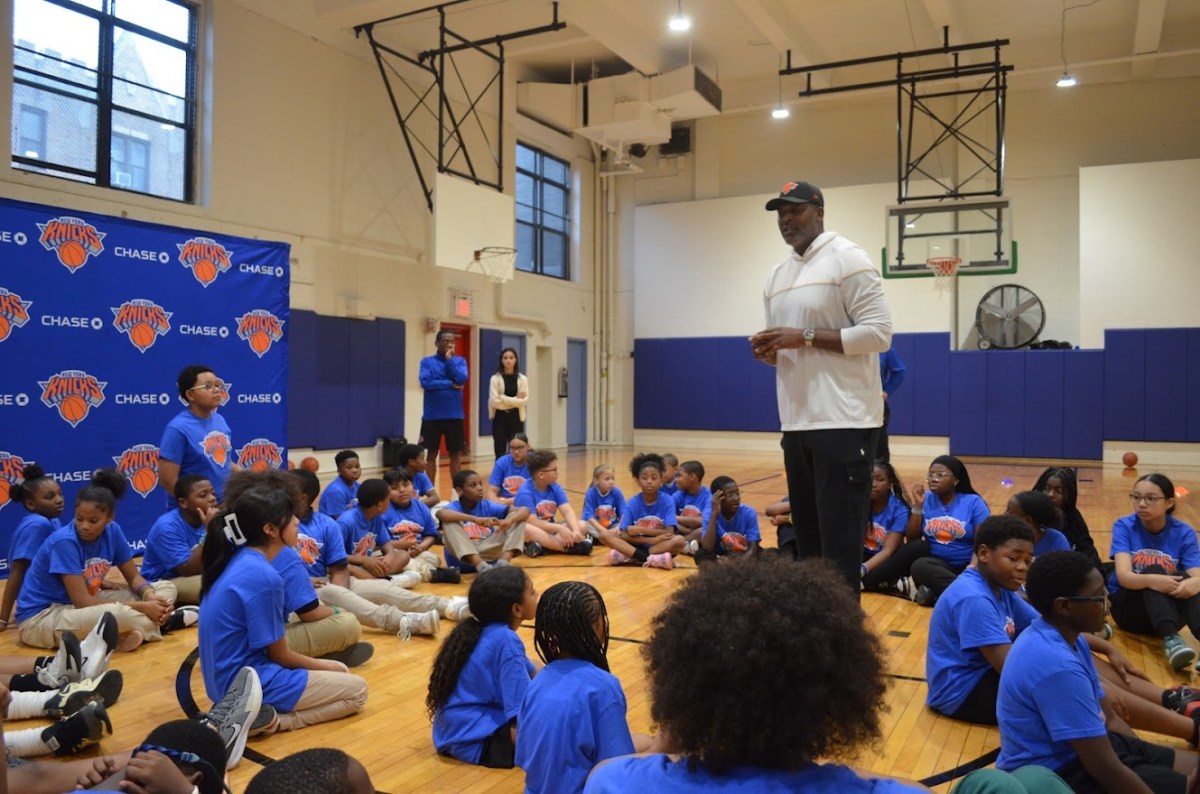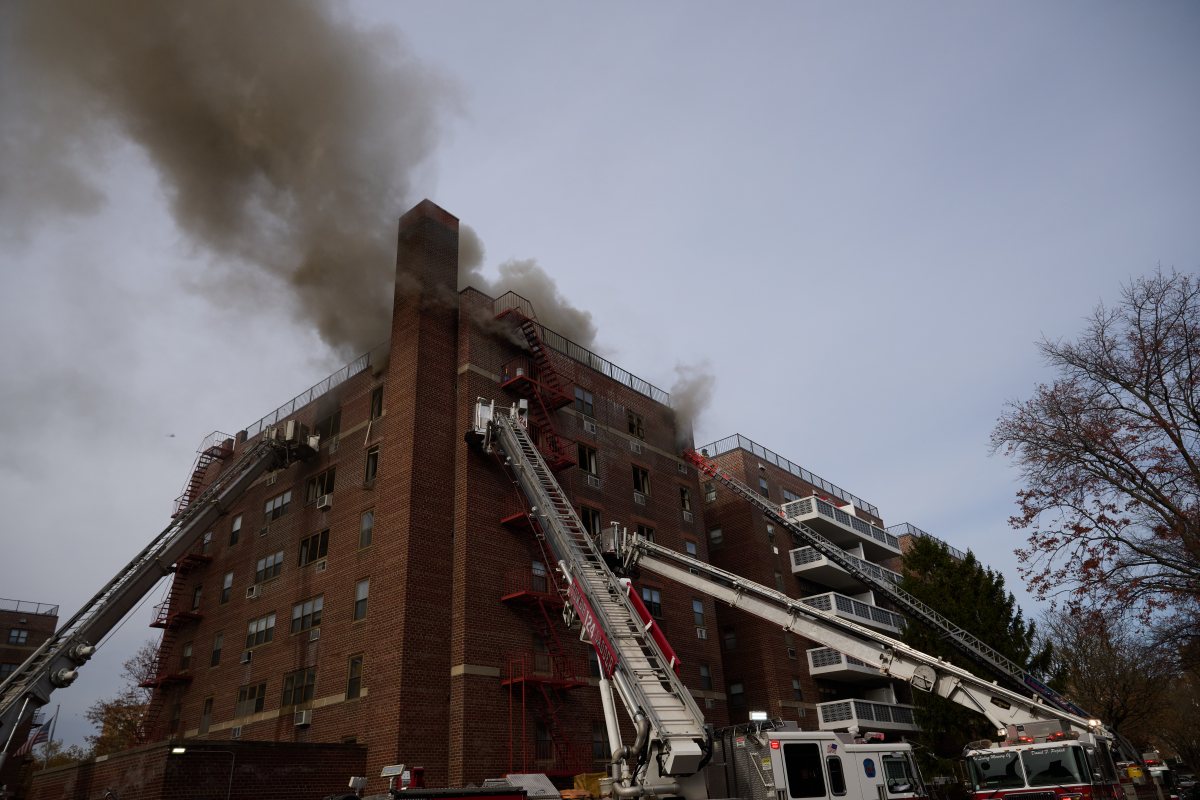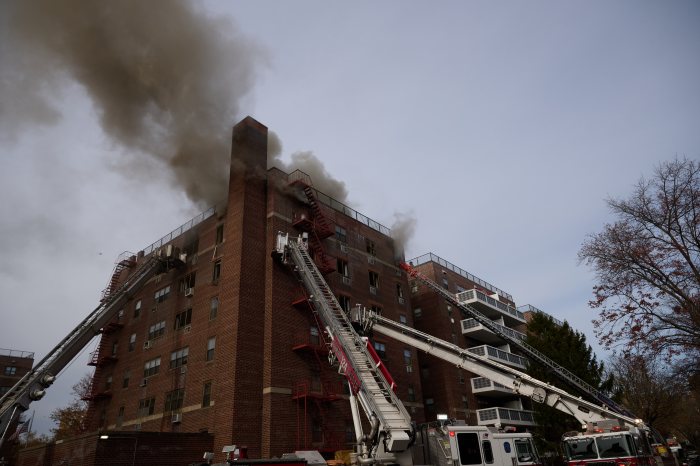The Knicks looked ready to run away with Game 4 midway through the second quarter, but when the Cavaliers fought back, New York leaned on a strong performance from RJ Barrett and the bench to propel them to a 102-93 win and a commanding 3-1 lead in the series.
Jalen Brunson came out of the gates on fire for the Knicks, scoring 11 points of his 29 points in the first quarter on 4-of-7 shooting from the field with four rebounds, two assists, and two steals. He and the Knicks’ defense dictated the game early on with New York snatching three steals and forcing five Cavaliers turnovers in just the first quarter.
Cleveland appeared flustered, particularly Donovan Mitchell, who had a poor game, scoring just 11 points on 5-of-18 from the field while posting six turnovers.
However, with the Cavaliers on the ropes, the Knicks’ offense got stagnant at the end of the second quarter.
New York had built a 46-31 lead and appeared to be running away with the game. They were forcing Cleveland into bad shots and getting quick transition looks at the other end, just as they had in Game 3. Then, abruptly, everything shifted. The offense dried up and the defense broke down.
The Knicks became too ISO-focused on offense and were content to take drive-and-kick or post-and-kick threes that were well-contested. If it wasn’t for Mitchell Robinson cleaning up the offensive glass, they might not have scored anything during a brutal 13-minute stretch from the middle of the second quarter until the middle of the third.

The truth is that the team needs to look no farther than its two stars for why things turned so quickly.
From 6:56 to go in the second until 6:26 to go in the third, Brunson and Julius Randle combined for five points, and the Knicks were outscored 33-21. At the start of the third quarter, Randle was agitated that he couldn’t get his shot to fall and seemed to lose focus on the defensive end. He missed rotations, failed to box out, and the rest of the defense suffered.
At the end of the third quarter, Knicks coach Tom Thibodeau subbed Randle out of the game, and the power forward never came back into the game.
The team also stopped using the guard-to-guard screens that worked so well in Game 3 and early in Game 4. Instead, they sent Robinson on high screens, which allowed Jarrett Allen to help swarm Brunson at halfcourt, giving the point guard no space to move. Brunson responded by dribbling the ball far too long on multiple possessions which sapped the Knicks of any rhythm.
It was a weird quarter of regression for a team that seemed to be finding an identity over the last six quarters.
“Our defense wasn’t very good,” said Thibodeau after the game. “We were playing slowly, but I think when you’re not getting stops that tends to lead to that. We know there are going to be shifts in games. We got to make sure that we can get through that.”
It seemed to be a spark that also brought Darius Garland back to life. The Cavalier’s point guard had seemed hesitant and out of sorts after his poor performance in Game 3 but went into attack mode in the third quarter. He drove right at Brunson, beating him off the dribble on numerous occasions. When the Knicks’ rotations were too slow, he took it to the rim, and when the lane was cut off, he found his teammates for easy looks.
His effort almost single-handedly brought Cleveland back into the game.
Yet, despite the struggles, Thibodeau left his starters in for essentially the entire third quarter. before bringing Isaiah Hartenstein in for Robinson with 3:30 left in the third quarter.
The sub paid off immediately when Hartenstein blocked a dunk attempt by Isaac Okoro, chased down the loose ball, and hit ahead to Barrett for a layup. Then, on Cleveland’s final possession of the quarter, he blocked a Jarrett Allen dunk attempt and set up a Brunson three which allowed the Knicks to reclaim the lead 73-71.
“We responded,” asserted Thibodeau. “We got hit hard, picked ourselves up, and came back.”
The performance by Hartenstein won’t catch many eyes in the statsheet, aside from his eight rebounds and two blocks, but he was a major reason that the Knicks were able to pull this out. His +11 plus/minus was the highest on the team, tied with fellow bench players Immanuel Quickley and Obi Toppin.
Those three, and Josh Hart who is normally a reserve but had to start for an injured Quentin Grimes, were the heartbeat of the Knicks for much of the game. They were active on defense, flying to loose balls, and making the extra pass. Hart pulled down multiple crucial rebounds in the final quarter and finished with 19 points, seven rebounds, two assists, and two steals.
“Our bench has really good chemistry,” asserted Thibodeau. “They play off each other really well.”
The bench played a big role in picking the Knicks up. In fact, not one person on the bench had a negative plus/minus, which includes Miles McBride who played just five minutes but drew a charge on Mitchell in his first minute on the court. Then came down and drilled a three on the very next possession off of a drive and kick from Barrett.
Other than the play from the four normal bench players, Barrett was the star for the Knicks. He scored a playoff career-high 26 points on 9-of-18 from the field. He also had two rebounds, one assist, one block, and didn’t commit one turnover.
It was the second straight tremendous performance for the 22-year-old, who is a crucial reason why the Knicks are up 3-1 with the series headed back to Cleveland on Wednesday. Only 13 teams in NBA history have come back from being down 3-1, but the Knicks aren’t taking anything for granted.
“It’s a best of seven series,” said Hart after the game. “Going into their home now, so they’re gonna be ready. Obviously, the crowd is gonna be crazy, but we just need to focus on getting better as a team.”
For more Knicks coverage, visit amNY Sports




































